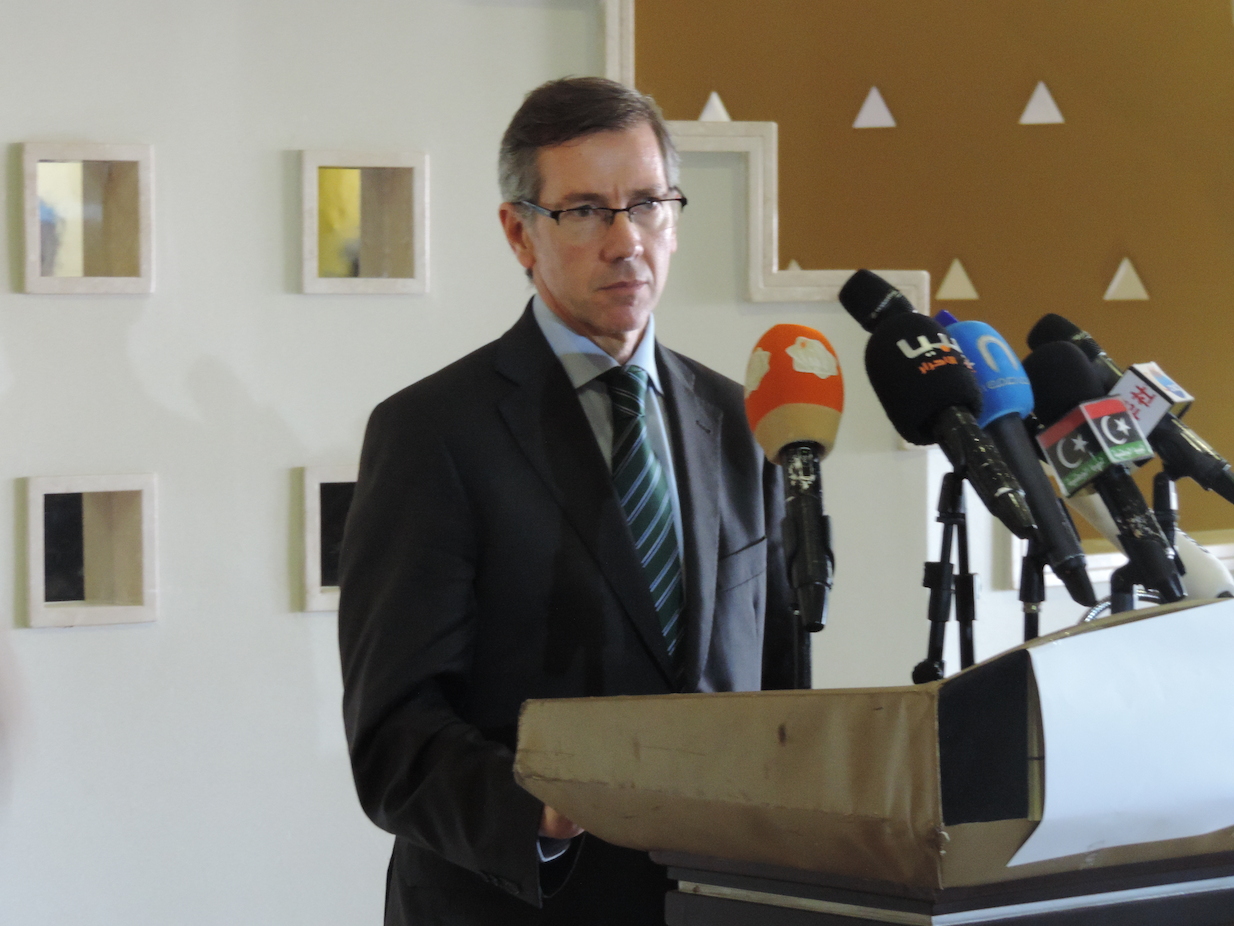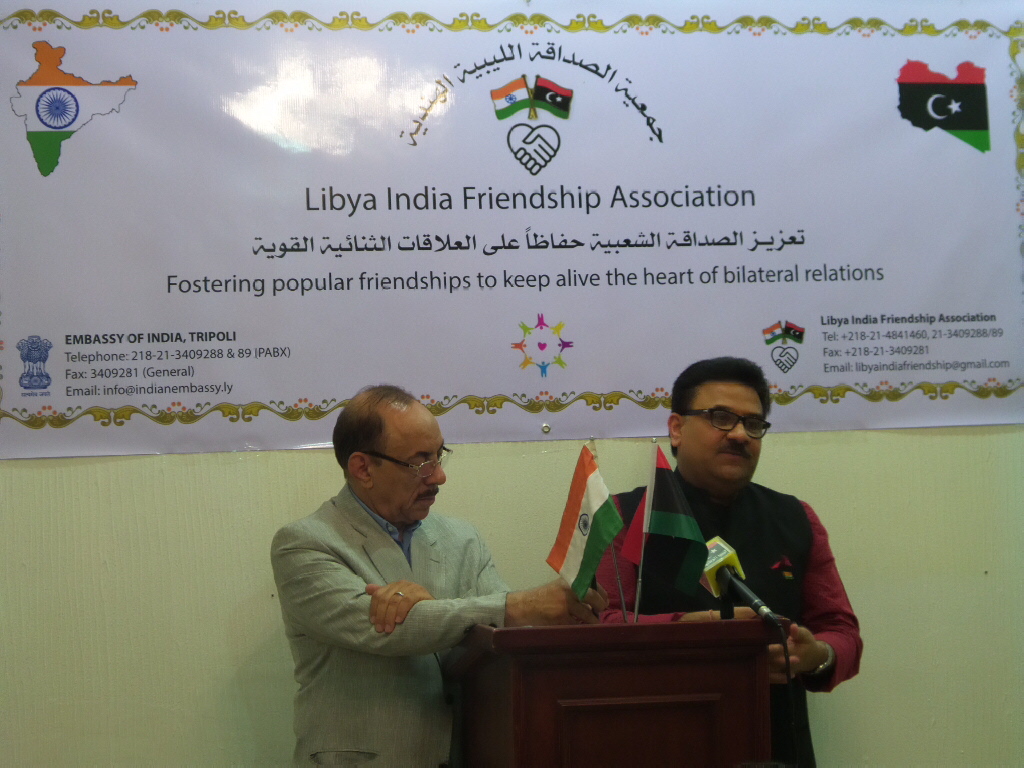![EU High Representative's Special Envoy for Libya Bernardino Leon (Photo: . . .[restrict]Callum Paton)](http://www.libyaherald.com/wp-content/uploads/2014/05/DSCN7633.jpg)
Tripoli, 26 May 2014:
The EU High Representative’s Special Envoy for Libya, Bernardino Leon, has said fighting terrorism, is crucial to the creation of a free and democratic Libya.
Speaking at a press conference in Tripoli yesterday, following a series of meetings with top officials, Leon said “terrorist groups particularly in the east” were “a serious threat to this country and neighbouring countries”. He added that these groups also threatened the safety of the international community. He mentioned Ansar Al-Sharia in particular.
“This county has been facing increasing problems with state officials killed in Benghazi in Derna,” Leon said. “No democracy can be built in Libya if this situation continues.” He added that groups diametrically opposed to the state had to be removed.
Leon said much was required of Libyan institutions as the country faced “the worst crisis since the civil war”. He said “this is not only a message from the European community and the international community … this is a message from the Libyan streets. Libyans are expecting Libyan parties to live up to this historic moment”.
The Special Envoy said it was of crucial importance that elections to the House of Representatives go ahead on the proposed date of 25 June and that “all Libyan political actors and stakeholders work democratically and inclusively”.
Leon also referred to the ambiguous situation in the General National Congress (GNC) saying that Congress members had offered a deal to Prime Minister Abdullah Al-Thinni allowing him to remain at his post. “The door is open for agreement between the different actors,” he said. At the time the GNC was pushing through a last minute vote to approve an incomplete cabinet which would unseat Thinni.
Responding to a question about retired general Khalifa Hafter, Leon said he had not spoken with the leader of the Dignity Operation. He said, however, that “what is important to take into account is not Hafter but what he represents”, referring to Libyans’ desire for the removal of armed groups.
Leon said in the case of Hafter he hoped all current problems could be resolved through established institutions. [/restrict]









